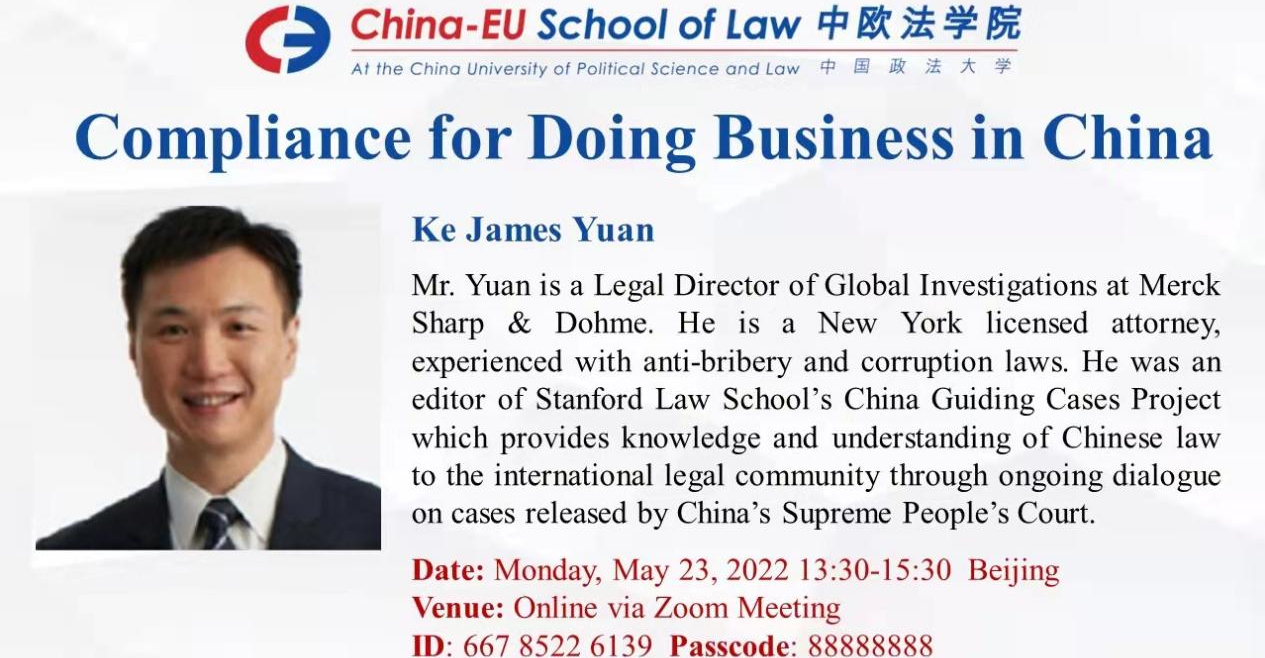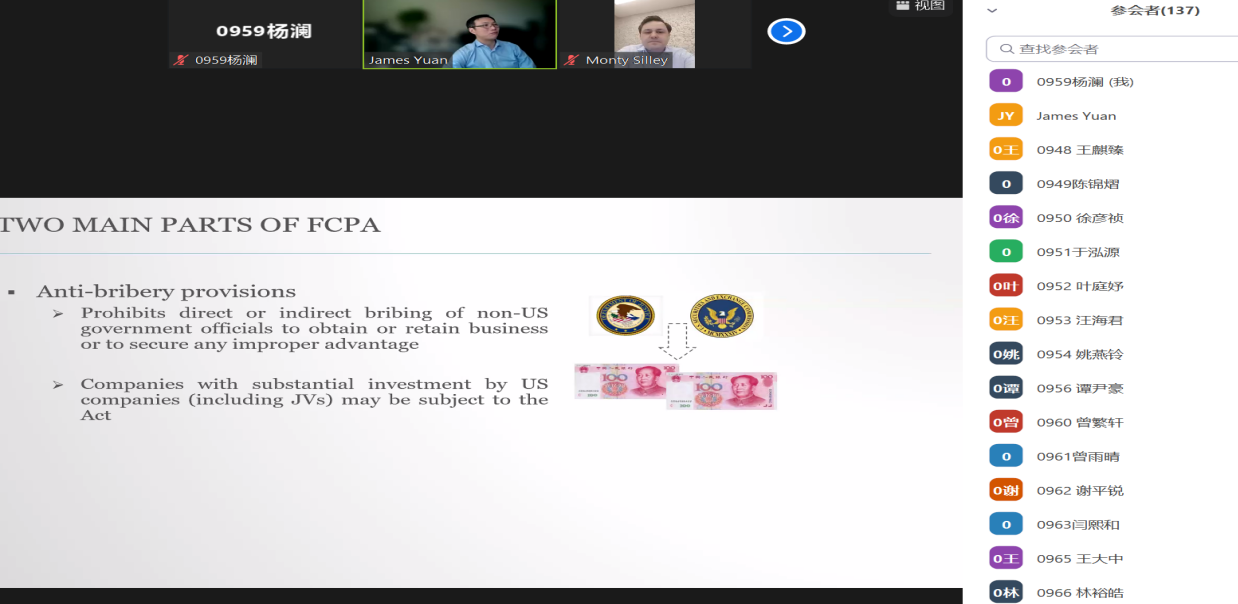On the afternoon of May 23, 2022, the China-EU School of Law (CESL) hosted the Second International Legal Practice Lecture online with Mr. Ke James Yuan. Mr. Yuan is a New York licensed attorney, deeply experienced in cross-border litigation, internal investigations, and white-collar crime, in particular anti-bribery/corruption practices. He is currently a Legal Director of Global Investigations at the Office of General Counsel of Merck Sharp & Dohme (MSD). Mr. Yuan has also been an Associate Managing Editor of Stanford Law School's China Guiding Cases Project, which provides an understanding of Chinese law to the international legal community through ongoing dialogue on cases released by China's Supreme People's Court. The lecture was chaired by Professor Monty Silley, the Executive Dean of the China-EU School of Law, with whom Mr. Yuan had closely worked on multiple high-profile international legal cases in New York, as well as the China Guiding Cases Project. An audience of over 150 CESL students attended the lecture.

Mr. Yuan first raised a vital issue to the audience: Why should we be concerned about compliance? Along with Professor Silley, Mr. Yuan began by emphasizing the importance of business ethics and cultivating a culture of diversity, for preserving a company's good values and for intrinsic moral responsibilities. Then, by interacting with the audience, Mr. Yuan invoked the students to consider compliance from various legal and practical perspectives. First, they needed to be aware of the overall strengthened international efforts in cross-border anti-corruption enforcement and inter-governmental cooperation in the modern legal arena. Second, the Chinese business environment and China's continuous efforts to fight corruption over the recent years was explained. Last but not least, the foreseeable collateral impact and consequence of "a bad, non-compliant corporate conduct" was outlined, i.e., additional legal liabilities and penalties, as well as social responsibilities, arising from one place to impacting a company in multiple different jurisdictions.
Subsequently, Mr. Yuan introduced and analyzed the Foreign Corrupt Practices Act (FCPA) and the UK Bribery Act. Mr. Yuan focused on the two core parts of the FCPA: the anti-bribery provision and the books and records provision. He highlighted the broad jurisdictional aspects of these extraterritorial laws and the significant civil and criminal penalties arising for violations. The audience was fully engaged in the dialogue with Mr. Yuan by raising questions regarding the interpretation and practical application of those legal statutes. Professor Silley and the students widely recognized and appreciated Mr. Yuan's rich legal knowledge, invaluable professional experience, and unwavering patience in explaining complex topics in a manner that all students could grasp.

Mr. Yuan then introduced and discussed other anti-corruption-related laws and some typical business compliance concerns, particularly for multinational corporations that are doing business in China. In addition, Mr. Yuan and Professor Silley vividly described some common compliance risks that exist in China, by examining several difficult situations and how legal counsel or senior compliance officers should navigate these.
Mr. Yuan concluded the lecture by providing practical takeaways to the audience. Throughout the engaging seminar-style lecture that lasted about 3 hours, he and Professor Silley shared many invaluable experiences and moral lessons from their legal careers. The audience was fully enthralled and consistently raised additional thoughtful questions. Mr. Yuan responded and discussed the questions from the legal, moral, and practical perspectives. He successfully captivated the audience in a highly interactive discussion with comprehensive advice from his broad knowledge and experience.
Contributed/Photo: Yang Lan, CESL double master's student
The First Lecture on Frontiers of International Legal Practice - IP Due Diligence

